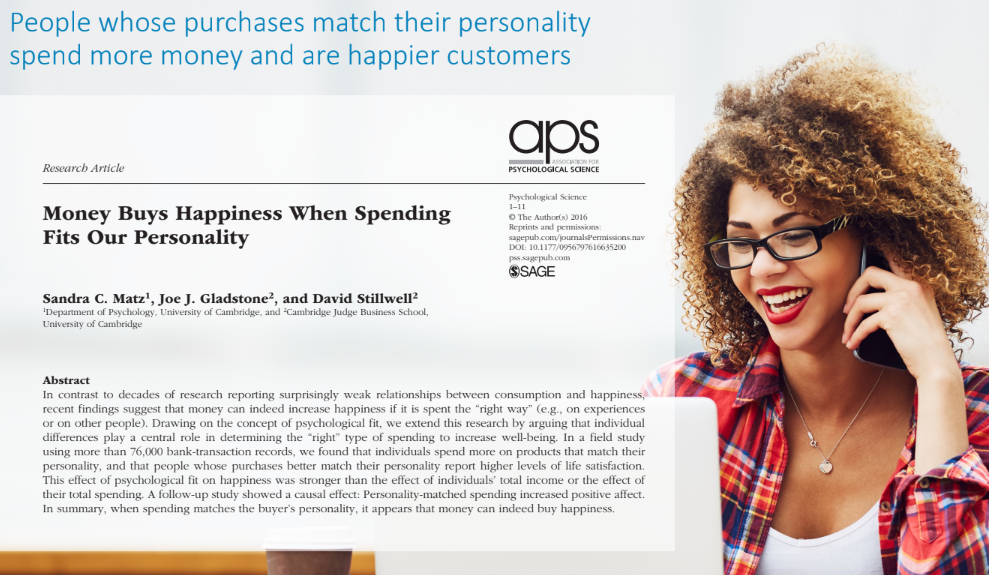Psychometric artificial intelligence has begun to revolutionize some of the world’s most competitive ad campaigns. Psychometrics, also known as Quantitative Psychology, is the science of reliably measuring, validating, and standardizing individual psychological differences, including: personality and values, cognitive biases, intelligence, mental health, life satisfaction, addiction, sexual orientation and political orientation among others. Companies are using personality based marketing as a form of persuasion. By appealing to the consumer by predicting their behavior based on their personality or psychometrics. There are a few companies out there that offer privacy-safe commercial applications to market, providing data-driven audiences that are cost efficient and deliver superior results to agencies or clients. An AI engine transforms surface-level behaviors into individual-level models of dozens of psychometric traits that are strongly rooted in the human constitution. These are among the most predictive data known to science on consumer interests and actions. The audiences can easily be activated on almost all social media and demand side platforms (DSPs), making psychometric targeting and analytics readily available to brands and their agencies. The benefits of psychometric targeting over conventional targeting are the following:
- Enhanced Conversion: Optimized audiences can outperform lookalike audiences by up to 320%. Why? Because ad targeting is a psychological prediction, and how you think is more predictive of what you do than what you look like and lift key performance indiccators (KPIs).
- Expansion of Total Addressable Market: The only targeting method that allows you to identify the Total Addressable Market of your ad campaign. Percentile-based audiences reveal the probability of engagement of users across the entire targeting universe. On average, 90% of users in a psychometric audience are missed by an equivalent lookalike audience.
- Personalization: Psychometric audiences optimize around each campaign based on who’s most psychometrically similar to engaged users. Audiences can optimize around hashed emails, web page visitors, mobile ad IDs, and ad engagement.
- Psychological Insights: For the first time, dozens of granular psychometric and demographic insights will be available and pinpoint who’s actually engaging with the brand – and why – allowing teams to take personalization to the next level.
However, there has been controversy about the use of this tactic in marketing. Is it ethical? According to an article in the Harvard Review, the basics of collecting and using personality traits ethically should follow the general guidelines of other behavioral science research of consumers (Graves, 2018). Some of these include: transparency of intent and usage; abiding by privacy laws and regulations; and aligning researcher/marketer interests with those of respondents.
What are your thoughts about using psychometric profiling to better reach your target audience?
Resources
https://www.wired.com/story/the-noisy-fallacies-of-psychographic-targeting/
https://ourdataourselves.tacticaltech.org/posts/psychometric-profiling/
https://hbr.org/2018/05/what-marketers-should-know-about-personality-based-marketing


2 Responses to IS PSYCHOMETRIC TARGETING ETHICAL?